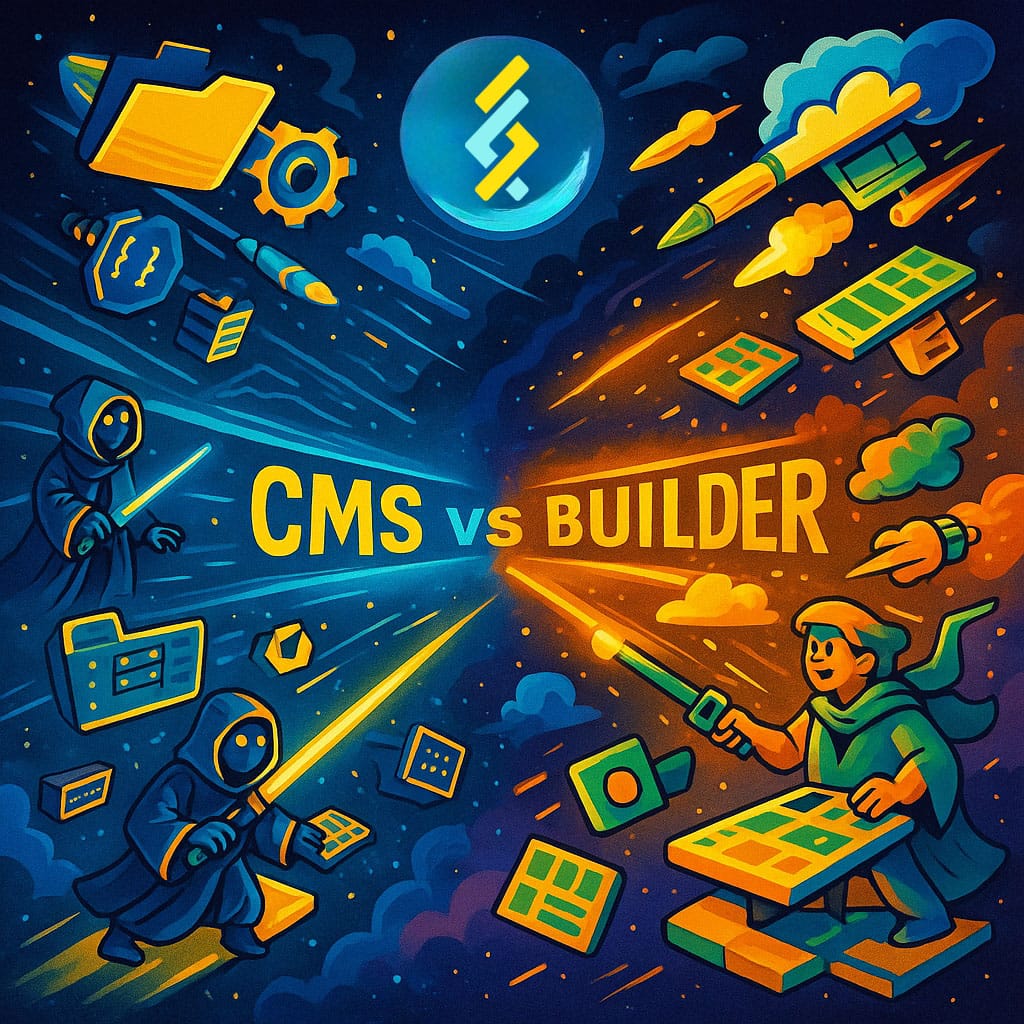Building a digital presence today is easier than ever, thanks to tools that simplify how websites are created and managed. Two of the most common options are Content Management Systems (CMSs) and Website Builders. While they may appear similar on the surface, they serve different purposes and offer varying levels of customization, control, and complexity. Knowing the difference is key to choosing the right platform for your goals.

What Are Content Management Systems (CMSs) Used For?
A CMS is a software application that enables users to create, edit, manage, and publish digital content without needing to code. These systems are ideal for websites with dynamic content or multiple contributors.
Common use cases for CMSs include:
-
Blogs and news websites
-
Corporate websites with regularly updated content
-
E-commerce stores
-
Membership or subscription platforms
-
Multi-author content hubs and media sites
CMSs are built for scalability, making them great for growing organizations that need flexibility, plugins, and integration options.
How CMSs Differ from Website Builders
While both CMSs and website builders allow you to create websites, their structure, flexibility, and target audience differ:
Content Management Systems:
-
Typically self-hosted or open source
-
Allow for full customization via themes, plugins, and custom code
-
Require some technical knowledge or development support
-
Highly scalable and ideal for larger or more complex sites
Website Builders:
-
Fully hosted and managed platforms
-
Offer drag-and-drop interfaces and templated designs
-
Require little to no coding skills
-
Best for small businesses, portfolios, or one-page sites
If you need complete control and room to scale, a CMS is often the better choice. If you want to get online quickly without the tech hassle, a website builder may be the right fit.
Top Content Management Systems
-
WordPress: The most widely used CMS in the world. WordPress is open-source, supports thousands of themes and plugins, and is highly customizable.
-
Drupal: A powerful CMS known for its flexibility and robust user permissions. Great for enterprise-level sites and technical teams.
-
Joomla: An intermediate option that offers more structure than WordPress but requires less technical skill than Drupal.
-
Ghost: A modern CMS built for publishing and blogging, with a clean interface and excellent speed performance.
-
Shopify (as CMS for e-commerce): While technically a hosted solution, Shopify functions as a CMS for product-based sites with robust commerce tools.
Top Website Builders
-
Wix: A drag-and-drop website builder that’s beginner-friendly and supports a wide range of templates and apps.
-
Squarespace: Known for sleek, designer-quality templates and intuitive editing tools.
-
Webflow: A visual builder aimed at designers and developers who want more advanced control without touching code.
-
Shopify (as a website builder): Also makes the list here for businesses looking to launch a storefront with minimal setup.
-
GoDaddy Website Builder: Ideal for small businesses looking for quick launch times and built-in marketing tools.
Choosing between a CMS and a website builder depends on your project’s needs, technical resources, and long-term goals. CMSs offer deep customization and control, while website builders prioritize speed and simplicity. Each tool has its place, and the right choice empowers you to grow and manage your digital presence effectively.
At Code Scientists, we help teams choose and implement the right platform for their web strategy. Whether that means developing a custom CMS solution or launching with a powerful website builder.